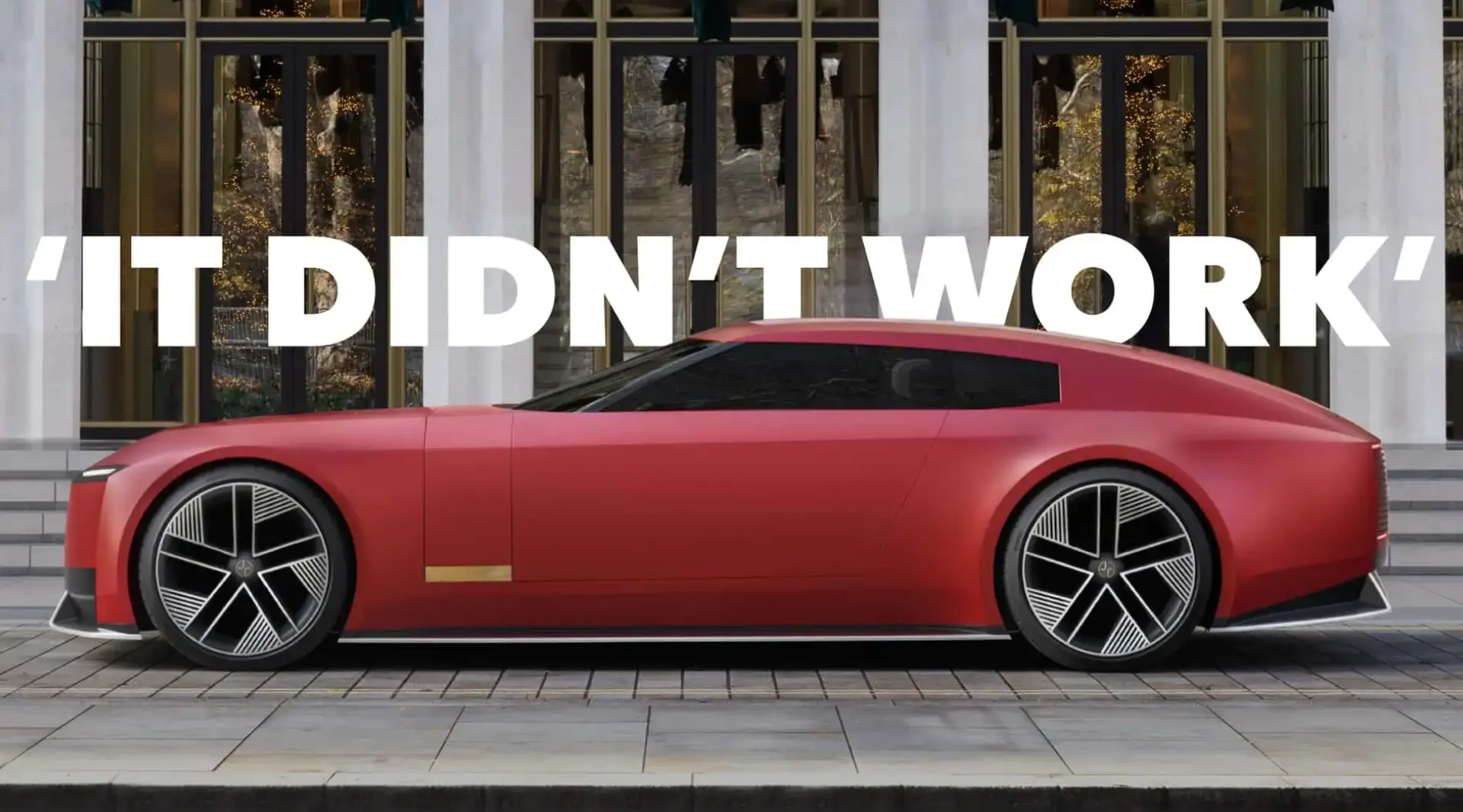Toyota's Marketing Strategy: Combining Innovation and Reliability
Updated on
Published on

Toyota stands as one of the most recognizable and successful automotive brands globally. Behind its rise is a well-calibrated marketing strategy rooted in innovation, customer satisfaction, and a deep understanding of market dynamics. Toyota’s ability to evolve with changing consumer demands, while sticking to its core values of reliability and quality, has solidified its standing as one of the best in the automotive business.
Let’s start by looking at some impressive figures that highlight Toyota's reach and success:
10.5 million vehicles sold globally in 2022, affirming its position as a market leader.
Over 50 million Corollas sold since its introduction in 1966.
Toyota has sold more than 15 million hybrid vehicles worldwide.
Plans to launch 70 electrified models by 2025, including 15 fully electric models.
These stats offer just a snapshot of how Toyota's marketing efforts, combined with its product offerings, have created a winning formula over the years. Let’s dive deeper into the strategies that have driven Toyota’s growth.

Consistency and Reliability: Toyota’s Core Brand Values
Toyota’s marketing strategy has always revolved around dependability and customer trust. For years, Toyota has built a reputation as the go-to brand for cars that last. In fact, J.D. Power regularly ranks Toyota among the top brands for vehicle dependability. This level of trust helps Toyota establish lifelong relationships with its customers, contributing to high resale values and overall brand loyalty.
But reliability alone wouldn’t have kept Toyota on top. Over the past few decades, Toyota has worked on redefining innovation while still promoting its core message of trustworthiness. Cars like the Toyota Prius, launched in 1997, were game-changers. As the world’s first mass-produced hybrid, the Prius helped Toyota become a symbol of environmental responsibility. The car’s success isn’t just due to its innovative hybrid technology—it was also marketed as a solution to eco-conscious drivers at a time when climate change was becoming more widely recognized.
By 2021, Toyota had sold over 15 million hybrid vehicles globally, with hybrids making up more than 60% of sales in Europe. Toyota didn’t just enter the green market; it practically defined it for the auto industry, using its marketing to establish hybrid vehicles as an essential part of sustainable driving.

Global Market Adaptability: Tailoring Marketing for Local Markets
One of the hallmarks of Toyota’s marketing is its ability to adapt its strategies for regional success. Toyota operates in over 170 countries, but it doesn’t use the same approach everywhere. For example, the way Toyota markets itself in the United States is entirely different from its approach in Europe or Asia.
In North America, the focus is on ruggedness and reliability, particularly for trucks and SUVs. Popular models like the Toyota Tacoma and Toyota 4Runner are marketed as tough, off-road-ready vehicles that appeal to the adventure-driven U.S. consumer. These campaigns emphasize durability, power, and reliability in outdoor conditions, meeting the American demand for trucks and larger SUVs.
In contrast, Toyota’s European strategy revolves around eco-friendliness and fuel efficiency, which is critical in a market where environmental regulations are stringent, and consumers prioritize low emissions. Toyota’s hybrid lineup has thrived in Europe, with hybrid models making up the majority of sales. This regional tailoring is one reason why Toyota has a strong foothold in Europe, despite the stiff competition from European automakers.
In emerging markets like India, Toyota’s marketing emphasizes affordability and fuel efficiency. The Toyota Innova and Toyota Glanza are marketed as fuel-efficient, low-maintenance cars that cater to middle-class families. Toyota’s success in these regions has been driven by its ability to understand the local economic climate, consumer preferences, and vehicle needs, ensuring its vehicles resonate with the target audience.
Digital Marketing and Engaging Younger Audiences
As digital marketing has become more important, Toyota has embraced new ways to engage consumers online. With millions of followers across Instagram, YouTube, Twitter, and Facebook, Toyota is highly active on social media, using these platforms to highlight product innovations, showcase customer experiences, and promote new model launches. But more than that, Toyota leverages its online presence to create personalized experiences for its audience.
Take the Toyota Owners' Portal, for instance. This customer relationship management (CRM) tool allows owners to manage their vehicle maintenance, receive reminders, and access personalized offers. This builds customer loyalty by offering convenience and personalized attention, which extends beyond the traditional dealer relationship.
Toyota also embraces video content marketing. Through YouTube channels, streaming ads, and collaborations with online influencers, Toyota successfully reaches younger demographics. For example, the company's partnerships with esports teams and appearances on platforms like Twitch help the brand reach a more tech-savvy, gaming-focused audience, which traditional automotive advertising might not connect with as effectively.

Iconic Campaigns: Selling More Than Just Cars
Toyota’s advertising campaigns have been incredibly effective in selling more than just cars—they promote a lifestyle. One of the most recognizable campaigns is the “Let’s Go Places” slogan. It encapsulates the idea that a Toyota car isn’t just a mode of transportation; it’s a key to adventure, personal growth, and new experiences. This campaign doesn’t just appeal to the vehicle’s practicality—it connects with customers on an emotional level, encouraging a sense of freedom and exploration.
In the U.S., Super Bowl commercials featuring Toyota have further driven home the brand’s image as a trustworthy, versatile car manufacturer. Whether highlighting the dependability of the Toyota Camry or the ruggedness of the Toyota Tundra, these high-visibility ads have helped Toyota maintain its place in American culture.
Embracing Sustainability: The Toyota Environmental Challenge 2050
Sustainability is no longer just a buzzword in the automotive industry—it’s a driving force. Toyota has recognized this early on and made it a central part of its marketing. The Toyota Environmental Challenge 2050 is a major initiative aimed at reducing CO2 emissions from new vehicles by 90% by 2050. This environmental commitment resonates deeply with eco-conscious consumers, particularly millennials and Gen Z, who are more likely to buy from brands that align with their values.
Toyota’s reputation as a green brand, especially with its hybrid lineup, positions it as a company that is not only keeping pace with trends but actively shaping the future. This emphasis on sustainability is woven into its marketing campaigns, from showcasing eco-friendly technologies to discussing the environmental impact of its manufacturing processes.

Looking to the Future: Electric Vehicles and Autonomous Driving
As the auto industry shifts towards electric vehicles (EVs), Toyota is prepared to embrace the future. Although it was initially cautious in its approach to EVs, Toyota is now fully committed, with plans to roll out 70 electrified models by 2025, including 15 fully electric models. These advancements are key not only for Toyota’s future but for how the company positions itself in the market.
Toyota's focus isn’t limited to EVs—it’s also diving deep into autonomous driving technology. With Toyota Research Institute (TRI), the company is heavily investing in AI, robotics, and autonomous driving technologies. Toyota has made it clear that these technologies will play a crucial role in shaping its future product offerings and marketing messages. The integration of cutting-edge features will be essential for positioning Toyota as a leader in automotive innovation.
Toyota's marketing strategy showcases how a brand can stay true to its core values while continuously evolving to meet modern demands. By building a reputation for reliability, embracing green technology, and tailoring its approach to regional preferences, Toyota has not only survived but thrived in the global market. As it pivots toward the future with a focus on electric vehicles and autonomous driving, Toyota’s marketing will continue to emphasize its strengths: innovation, sustainability, and dependability—setting the stage for another era of success.







